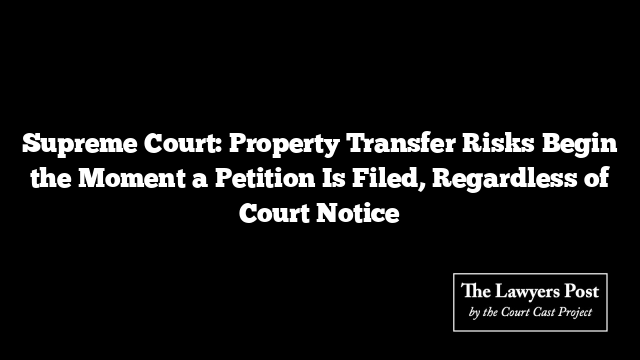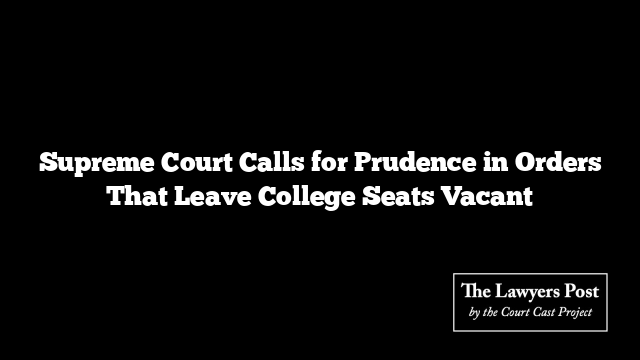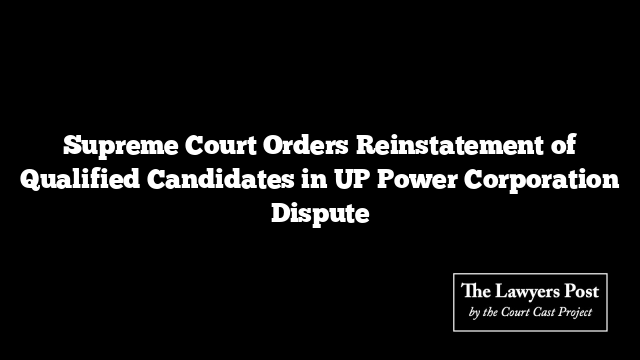In a pivotal interpretation, the Supreme Court has declared that the doctrine of lis pendens—which restricts property transfers once a legal action is underway—activates immediately upon the filing of a petition, not when a court issues notice. This ruling underscores the doctrine’s role in ensuring ongoing court proceedings aren’t sidestepped by asset transfers during litigation.
The decision arose as the Court reviewed a 2022 judgment where a property transfer took place after the judgment, yet before a review petition had officially been registered. The property’s sale raised questions over whether the lis pendens rule could apply since the petition, initially filed in a defective state, had lingered in the court’s registry.
The Court clarified that once a petition is filed, the proceedings are effectively in motion under Section 52 of the Transfer of Property Act, ensuring that any property transfer during this period remains contingent upon the lawsuit’s outcome. This interpretation broadens the doctrine’s coverage, asserting that even unregistered or technically flawed petitions initiate a pending status for property.
Emphasizing the rationale, the Supreme Court stated that lis pendens serves to prevent defendants from nullifying a lawsuit by transferring contested property. Defining “pendency” from the moment of petition filing prevents attempts to sidestep judicial outcomes.





